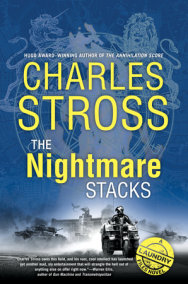
The Passage, by Justin Cronin
Book Review by David L. Felts
Have you read this book?
Man, vampires have been done to death, amirite? Maybe not....
The Passage, by Justin Cronin is the first book in a panned trilogy, and yet another take on the vampire lore. Here, vampirism results from infection from a virus that transforms a human being into a vampiric creature, called Virals, complete with inhuman strength and speed, as well as a vulnerability to ultraviolet light.
The story begins in the near future. A new virus has been discovered, residing in a previously undiscovered species of bat that reside in the South American jungle. This virus has the unique property of causing mutations in human, turning them into vampire like creatures. It might also hold the key to immortality. So, naturally, the government starts dicking around with it, using convicted felons as subject and keeping everything hush-hush.
Just as naturally, one of the subject manufactures and escape, and the virus is released on the world. It's not long before civilization is overrun. The novel begins in 2014 and covers more than ninety years, as isolated outposts of humans struggle to survive in a world filled with creatures who are continually on the hunt.
This is a hefty chunk of a book, weighing in at an impressive 912 pages in the mass market paperback edition. It's also a book that reads quick, grabbing the reader and plunging them into a fully realized world full of well-developed characters and plausible (in light of the novel's world) situations.
The first portion of the book follows the origins of the virus and its outbreak. We follow along with the discovery of the virus and the government's top secret experiments on death row inmates. We met patient zero Fanning - one of two surviving members of an expedition investigating a Bolivian bat-carried virus. The virus causes hemorrhagic fever and death in almost all who contract it, but it also causes a boost of the immune system, and enhances strength and agility. The government is trying to develop a version that doesn't have the mortality of the original. This project is headed by Dr. Lear and is called "Noah".
We're introduced to six year-old Amy, an experimental subject at the facility, where Dr. Lear exposes her to refined version of the virus, the same version that been given to the twelve original inmates who were the first experimental subjects. While they have managed to develop a version of the virus that no longer kills the host, they haven't been able to get ride of the mutation caused or the resulting violent and psychotic behavior induced. Cue the downfall of civilization...
The novel then jumps forward about ninety years, introducing a walled, isolationist colony that had been established by the military after the initial outbreak. The colony is in slow decline and under constant threat from roving Virals. The lights that protect the colony at night are close to failing. If they can't be fixed, the colony is doomed.
The above is a pretty short summary (without giving away too much I hope) of what is a very long yet very enjoyable read. This is much more an apocalyptic fiction book then a vampire story, sort of like a vampire-based version of the The Stand (which is one of my all time favorites), yet lacking the mystical mumbo jumbo magic King likes to infuse his stories with.
Definitely worth a read.
|
Click here to buy The Passage, by Justin Cronin on Amazon
|
The Passage, by Justin Cronin on Amazon

| More Books You Might Like |
Comment on The Passage, by Justin Cronin
| Comments on The Passage, by Justin Cronin |
| Posted by Dave on 3/12/2015 |
| One of the best reads I've had in a while! |




